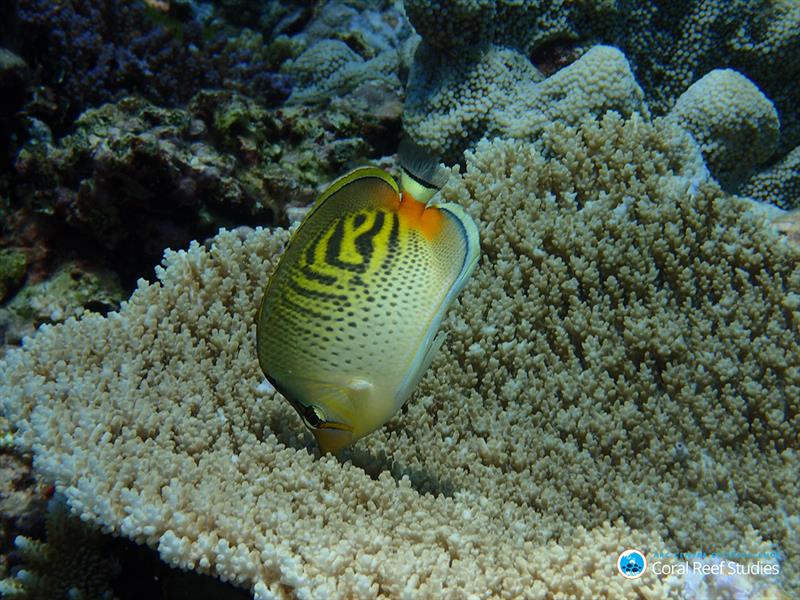
Fish give up the fight after coral bleaching
by Andrew Baird / Dr. Erika Woolsey 28 Oct 2018 06:04 UTC

Butterflyfish snacking on a bleaching survivor © Greg Torda
Researchers have found that when water temperatures heat up for corals, fish 'tempers' cool down, providing the first clear evidence of coral bleaching serving as a trigger for rapid change in reef fish behaviour.
Publishing in Nature Climate Change this week, researchers from Lancaster University and collaborating institutes including the ARC Centre of Excellence for Coral Reef Studies (Coral CoE) at James Cook University show how the iconic butterflyfish, considered to be sensitive indicators of reef health, can offer an early warning sign that reef fish populations are in trouble.
The international team of researchers spent more than 600 hours underwater observing butterflyfish over a two-year period encompassing the unprecedented mass coral bleaching event of 2016.
Led by Dr. Sally Keith of Lancaster University, previously Center for Macroecology, Evolution and Climate, the team examined 17 reefs across the central Indo-Pacific in Japan, the Philippines, Indonesia and Christmas Island (Indian Ocean).
During the initial data collection, the researchers were unaware that the catastrophic bleaching event was on the horizon. Once underway, the researchers realised that this serendipitous 'natural experiment' placed them in a unique position to see how fish changed their behaviour in response to large-scale bleaching disturbance.
The team sprang into action to repeat their field observations, collecting a total of 5,259 encounters between individuals of 38 different butterflyfish species. Within a year after the bleaching event it was clear that, although the same number of butterflyfishes continued to reside on the reefs, they were behaving very differently.
"We observed that aggressive behaviour had decreased in butterflyfish by an average of two thirds, with the biggest drops observed on reefs where bleaching had killed off the most coral," said Dr Keith. "We think this is because the most nutritious coral was also the most susceptible to bleaching, so the fish moved from a well-rounded diet to the equivalent of eating only lettuce leaves – it was only enough to survive rather than to thrive."
Such changes in behaviour may well be the driver behind more obvious changes such as declining numbers of fish individuals and species. The finding has the potential to help explain the mechanism behind population declines in similarly disrupted ecosystems around the world.
Co-author Dr. Erika Woolsey of Stanford University said: "By monitoring behaviour, we might get an early warning sign of bigger things to come."
"Our work highlights that animals can adjust to catastrophic events in the short term through flexible behaviour, but these changes may not be sustainable in the longer-term," added co-author Prof Andrew Baird of Coral CoE at James Cook University.
The paper "Synchronous behavioural shifts in reef fishes linked to mass coral bleaching" is available online here.